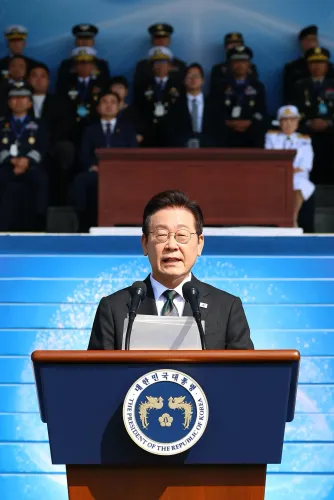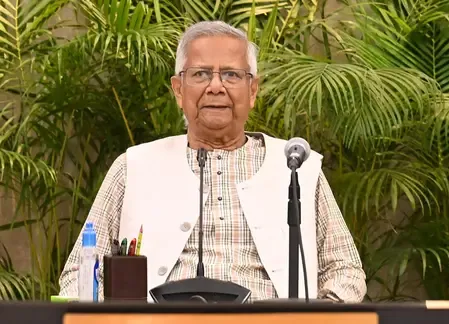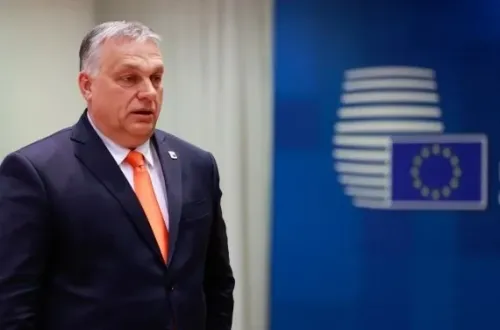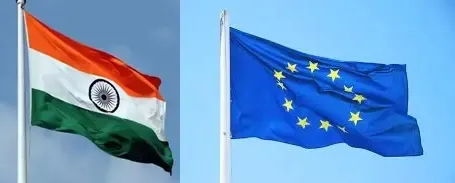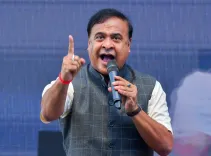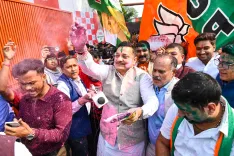How did UNODC Representative Holge Present Credentials to MEA Secretary George?
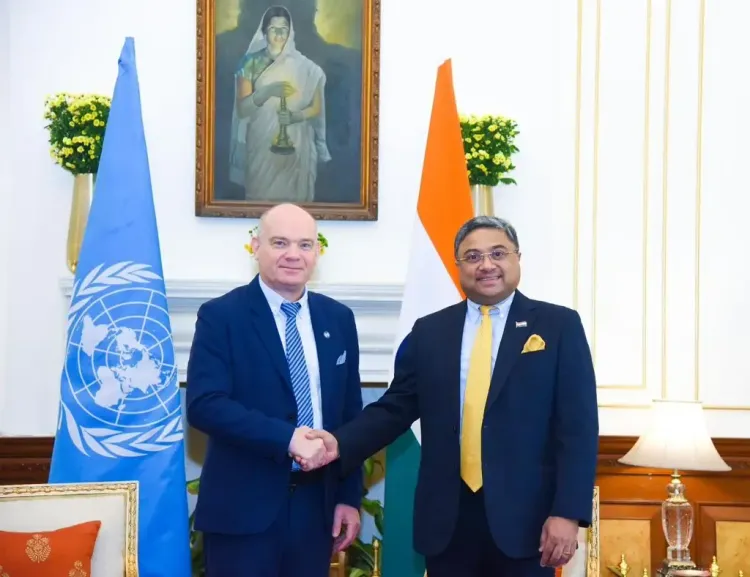
Synopsis
Key Takeaways
- Kristian Holge assumes key role at UNODC.
- Meeting with Sibi George marks collaborative efforts.
- UNODC pledges support to India's national initiatives.
- Focus on tackling drugs, crime, and corruption.
- Importance of strong institutions emphasized.
New Delhi, Nov 14 (NationPress) Kristian Holge, the Regional Representative of the United Nations Office on Drugs and Crime (UNODC) for South Asia, has officially submitted his credentials to Sibi George, Secretary (West) of the Ministry of External Affairs, during a meeting in New Delhi on Friday.
In this engaging meeting, George extended his best wishes to Holge for a fruitful tenure in India.
As noted by MEA spokesperson Randhir Jaiswal on social media platform X, "Secretary (West) Sibi George welcomed Mr. Kristian Holge, Regional Representative of UNODC, and wished him a significant tenure in India."
The UNODC expressed its commitment to assisting the Indian government in national and regional initiatives aligned with its mandate.
In a post shared on X, the UNODC Regional Office for South Asia mentioned, "Mr. Kristian Holge has presented credentials to Secretary (West) MEA India Sibi George, and we are prepared to aid the Government of India with its national and regional responses under the purview of UNODC South Asia's mandate areas."
The mission of UNODC is to enhance global peace, security, human rights, and development by creating a world that is safer from drugs, crime, corruption, and terrorism, as highlighted in the official statement. This strategy aims to empower UNODC to operate effectively, efficiently, and with accountability, thus enhancing its support to member nations in building equitable, inclusive, and resilient societies that do not leave anyone behind.
UNODC's mandates encompass areas related to transnational organized crime, criminal justice, countering corruption, drug control, and terrorism. This allows the Office to offer comprehensive solutions to the interconnected challenges faced by member states, according to the statement.
Robust institutions characterized by integrity and accountability will yield effective responses and improved access to justice. Moreover, strong institutions play a crucial role in promoting a balanced approach to drug-related issues. The Office ensures that efforts addressing crime, corruption, terrorism, and drugs are coordinated across national borders, fostering shared responsibility in tackling these challenges.

